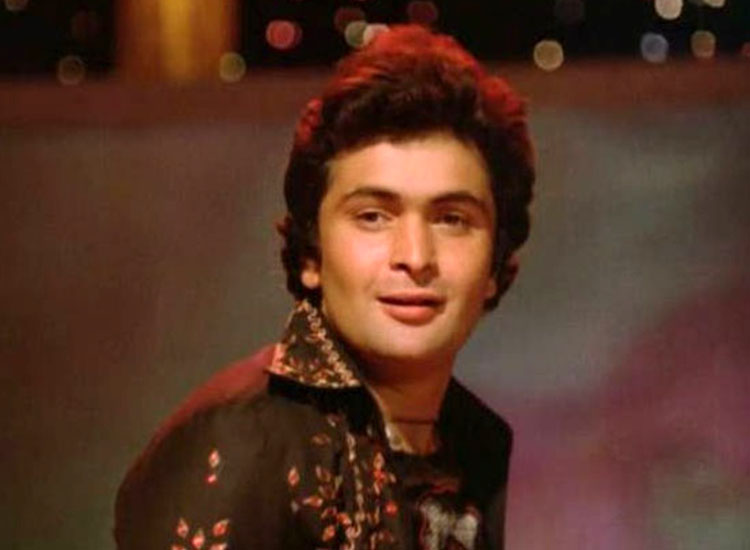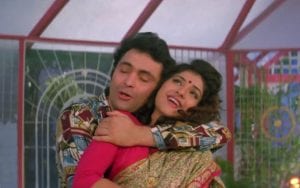
Rishi Kapoor: The Dorian Gray of Indian cinema who made romance timeless
For several decades it was difficult to imagine there would ever be a wrinkle on Rishi Kapoor’s face. Till a few years ago, he was romancing debutants like Divya Bharti, Zeba Bakhtiar, and Tabu, singing memorable songs in the Alps, bringing into fashion colourful pullovers slung over his shoulders.

For several decades it was difficult to imagine there would ever be a wrinkle on Rishi Kapoor’s face. Till a few years ago, he was romancing debutants like Divya Bharti, Zeba Bakhtiar, and Tabu, singing memorable songs in the Alps, bringing into fashion colourful pullovers slung over his shoulders. We thought he was the Dorian Gray of Indian cinema— an ageless, immortal icon of youth, stunning good-looks and energy. And now he is gone. Pinch yourself again; Rishi Kapoor is really no more.
With him is gone also an era. Rishi Kapoor was one of the last reminders of an age when India grooved to the beats of RD Burman’s beats, sang along with Kishore Kumar and that forgotten genius Shailendra Singh, memorised Saahir Ludhianvi’s poetry and dreamt of romancing divas like Dimple Kapadia, Neetu Singh and Sridevi.
He was one of the few surviving links to the age of Manmohan Desai’s lost-and-found stories, of Raj Kapoor’s grand projects, of Yash Chopra’s chiffon-and-Switzerland romances, of multi-starrer cinema where an entire galaxy of stars would take the audience on a journey beyond the make-believe, of a golden age where films would be like Chitrahaar—an endless treat of song and dance.

The mark of a true legend is that their biography should read like the history of their era. Rishi Kapoor was one such legend and a lot more. Who do you remember when you think of Rishi Kapoor? Amitabh Bachchan, his perennial elder brother in a reel-life family where one of the siblings had a drink problem that needed a Vinod Khanna-esque character to resolve? Jeetendra, Rakesh Roshan, Mithun Chakraborty, Rajesh Khanna, Anil Kapoor? Or, does your mind hark back to a long, long time ago when a student with cheeks that resembled, as Saahir wrote, dehakte anaar peeped through the door to see Simi Garewal undress? Does he not remind you of Pran, Prem Nath, Durga Khote, Paintal and almost everybody you can think of?
Related news: Rishi Kapoor, 67, passes away due to complications from cancer
Rishi Kapoor wasn’t just history in motion, he was also geography. Watch his cinema again—it will take you not just to Zurich, Geneva and London, but also the tulip gardens of Srinagar, the meadows of Pahalgam and the breath-taking beauty of the Himalayan valleys.
“Prem naam hai mera, Prem Chopra,” Prem Chopra (who else) famously said in Rishi Kapoor’s Bobby. He was wrong; the name of Prem (love) was and will always be Rishi Kapoor. Picture him flirting with Neetu Singh in Kabhi Kabhie, burning the screen with his charm in that timeless Ludhianvi-Khayyam song Tera Phoolon Jaisa Rang, imagine him strumming the guitar on a Goa beach, serenading Dimple Kapadia in Saagar, or exploding with megatonnes of energy as he warns ‘Bachna ae Haseenon’ and you’d know the R in Rishi was actually for Romance.
Like all great journeys, Rishi Kapoor’s cinematic odyssey began with a necessity. His father Raj Kapoor, the greatest showman of Indian cinema, was heavily in debt after the failure of Mera Naam Joker. To bring himself out of the financial mess, he needed a new template for his outdated tramp-with-a-good-heart cinema, and for the new paradigm a new face.
Rishi Kapoor was barely out of his teens then, his whiskers had just about started descending down his cheeks. With his flaming pomegranate like cheeks, ruby-red lips and dreamy eyes, he resembled the picture of vulnerability. (Watch Aruna Irani try to seduce him and you’d know what I mean). Raj Kapoor hit on this avant-garde idea of making this innocent, just-out of-school boy with a hint of flab—Dimple ribs him in the film by calling him “Dibba” —to do the unthinkable—first get locked up in a room with a girl and throw away the key, and then elope with a girl. It was young, it was fresh, it was erotic, and it was scandalous. But, it was also a hoot.
Rishi Kapoor was an idea the Indian audience was waiting to happen. By the mid 70s, Rajesh Khanna had faded away a bit, pushed into the second-lead by the tsunami called Amitabh Bachchan. Swayed by the success of the angry-young-man, every existing actor was trying to be a copy-cat and, ultimately, falling on his painted face. In this muchness of angriness, Rishi Kapoor was a perfect foil to Bachchan—young, pretty, a bit portly and vulnerable—someone a girl would happily hit upon.
Two things happened with Rishi Kapoor’s arrival on the screen. And we are not talking about the craze for the midget bike called ‘Bobby’ or polka-dotted shirts. One, romance turned young—skipping generations from the avuncular Rajendra Kumar to the boyish Rishi Kapoor. And two, it became acceptable for a leading star to give space to powerful women on the screen. If you look at Rishi Kapoor’s trajectory, you’d realise Bobby—named after the heroine— was an apt beginning of a career that culminated with Damini, touching milestones like Chandni and Henna on the way.
Related news: Politicians, actors mourn Rishi Kapoor’s death, tributes pour in
To imagine that the R is Rishi would one day turn into Ruffian on screen would have been blasphemous in the 70s or the 80s. But, you see, the good thing about cinema is that it gives everyone the luxury of takes, re-takes and also the benefit of changing their image completely. So, when Rishi Kapoor portrayed Rauf Lala in Agneepath, it was the cinematic surprise of the decade. He did it with so much menace, bestiality and villainy that you felt retrospectively concerned about the women he had romanced in his youth.
The bad guy act, even if considered easy, is the most difficult thing in Indian cinema. India has had a huge pantheon of stars but very few have had the courage to try a negative role, and even when they have, the results have been downright average to disasters. Amitabh Bachchan tried it in Ramgopal Verma’s Aag and burnt his pants. Aamir Khan flirted with the idea in Deepa Mehta’s Earth but rushed back to the safety of the lover-boy spiel. Only Shahrukh Khan has two memorable entries under that category on his CV—Baazigar and Darr. But, Rishi Kapoor’s Rauf Lala ranks right up there because of two reasons—one he was returning to the big screen after a long hiatus, and two, nobody expected him to be anything other than a lover boy, or perhaps, a benevolent uncle or daddy ever in cinema.
The tragic part about Rishi Kapoor is that we lost him just when we were discovering the actor in him. Just when he was redefining middle-age comebacks with characters like Dawood Ibrahim, Rauf Lala, Duggal Sahab (that delightful comedy called Do Dooni Chaar) and his piece de resistance in Mulk, we lost him.

The sad part about life is that there are no re-takes, no second-comings or opportunities for re-launches. A few months ago, when Rishi Kapoor returned from abroad after being treated for blood cancer, we thought he would be with us for a long time. Just a few days ago, he was doing what he did best off-screen—speak his mind on twitter and stand his ground even when trolls attacked him. If you want to understand Rishi Kapoor the person, go no further than his tweets—they were brave, opinionated, unequivocal, political and almost always railed against hypocrisies and dogmas. (A few days ago, he had argued for reopening liquor shops as a palliative against the corona lockdown). They were a reflection of the man he was—cerebral, straightforward, full of joie de vivre and a passion for arguments.
It is still difficult to believe that Rishi Kapoor left us just a day after Irrfan Khan’s death. Maybe someone up there is desperate to put together a great star cast for a magnum opus. We can only surmise that with Rishi Kapoor in the team, the role of the king of romance is taken. Knowing him he would have gone up there singing and dancing, announcing to everyone: Bachna ae Haseenon…


